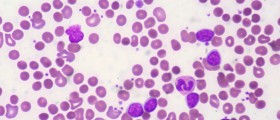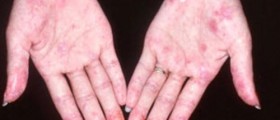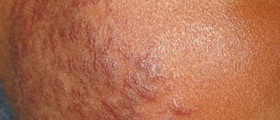What is Pycnogenol?
Pycnogenol is a product derived from the bark of the Pinus pinaster tree (French maritime pine tree). Active ingredients in Pycnogenol, called pycnogenols, can be also extracted from other sources such as peanut skin, grape seed, and witch hazel bark. Pycnogenol has several health benefits, but it has side effects as well.
It claims to be all-natural and helpful in treating various medical conditions. It is also an active ingredient in many dietary supplements.
Pycnogenol Uses
Since Pycnogenol has various active ingredients, it has various effects on the body. Pycnogenol has antioxidant and anti-inflammatory properties. It may improve blood flow and stimulate the immune system.

Pycnogenol is used for treating many conditions. These medical conditions include circulation problems, allergies, asthma, high blood pressure (hypertension), diabetes, muscle soreness, osteoarthritis, attention deficit-hyperactivity disorder, endometriosis (female reproductive system disease), menopausal symptoms, painful menstruations (dysmenorrhea), erectile dysfunction, gingival bleeding and plaque, pain, retinopathy (an eye disease), leg cramps, diabetic microangiopathy, pain in late pregnancy, platelet aggregation, melasma (chloasma), sunburn, venous leg ulcers and blood clots in the vein (deep vein thrombosis).
This medication is used for preventing stroke, varicose veins, and heart disease. Apart from that, Pycnogenol is used for slowing the process of aging and maintaining healthy skin since it strengthens collagen and elastin in the body. Additionally, Pycnogenol may improve male fertility and slightly decrease blood pressure.
- Bark extract of French P. pinaster has been reported to have cardio-vascular and cholesterol lowering benefits, the ability to enhance microcirculation by increasing capillary permeability, significant free radical scavenging activity against reactive oxygen and nitrogen species, the potential to regenerate the ascorbyl radical and to protect endogenous vitamin E and glutathione from oxidative stress, and the potential to protect erythrocytes in G6PD deficiency.
- The specifications of pinaster bark extract (PBE) are described comprehensively in the USP 30-Dietary supplements. PBE contains numerous phenolic compounds such as polyphenolic monomers, procyanidins, and phenolic acids (derivatives of benzoic and cinnamic acids) which have received considerable attentions because of their anti-inflammatory, anti-mutagenic, antimetastatic, anticarcinogenic, and high antioxidant activities.
- Several in vitro studies have revealed that PBE has anti-inflammatory effects and inhibits the initiation of inflammation by preventing the release of pro-inflammatory mediators regulated by oxidative stress. PBE inhibits the pro-inflammatory mediators in keratinocytes (epidermal cells), leukocytes, and endothelial cells.
- Zibadi and coworkers have reported that PBE resulted in improvement of type 2 diabetes controls and reduction of the risk factor of cardiovascular disease and antihypertensive medicine use in subjects with type 2 diabetes.
- PBE rich in polyphenolic compounds has been shown to cause endothelium-dependent vasorelaxation and decrease the amount of circulating inflammatory substances in the blood stream.
Pycnogenol Side Effects
Pycnogenol is a possible safe medication since pycnogenol's side effects have not been extensively studied. If you take Pycnogenol for treatment or as a supplement you might experience headaches, nausea, dizziness, gut problems, and mouth ulcers.
To reduce or avoid these side effects of Pycnogenol it is recommended to take this supplement with meals or after meals.
Severe side effects are only theoretically possible. They include increased risk of bleeding, internal hemorrhage, and risk of low blood sugar in diabetics.
Allergic reaction to Pycnogenol is another possibility. Signs of an allergic reaction include rash, hives, itching, wheezing, trouble breathing, swallowing and mouth or throat swelling.
Precautions and Warnings
It is believed that Pycnogenol may be safe in late pregnancy, but pregnant women and women who are breastfeeding should stay away from Pycnogenol to avoid any damage to the fetus or infant.
Given that Pycnogenol may cause the immune system to be more active, this medication might increase the symptoms of auto-immune diseases. You should avoid using Pycnogenol if you suffer from any auto-immune disease such as multiple sclerosis (MS), systemic lupus erythematosus (lupus), rheumatoid arthritis, or other.

















Your thoughts on this
Loading...